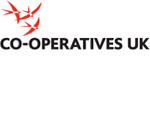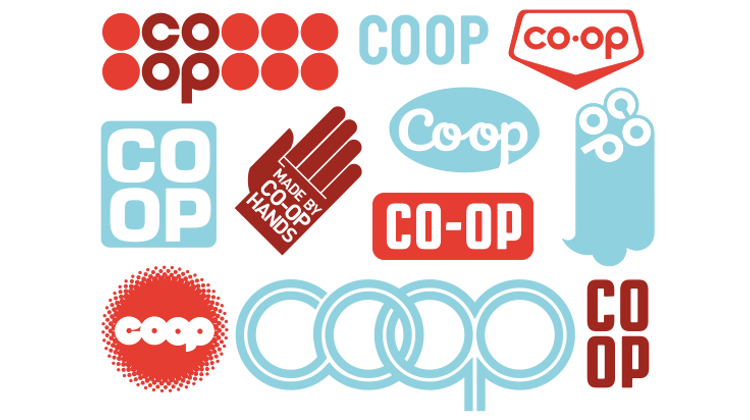What is a co-operative?
A co-operative is an autonomous association of persons united voluntarily to meet their common economic, social, and cultural needs and aspirations through a jointly owned and democratically-controlled enterprise. — International Co-operative Alliance
Co-operatives are businesses owned and run by and for their members. Whether the members are the customers, employees or residents they have an equal say in what the business does and a share in the profits.
As businesses driven by values not just profit, co-operatives share internationally agreed principles and act together to build a better world through co-operation.
In 1995, the International Co-operative Alliance adopted the revised Statement on the Co-operative Identity which contains the definition of a co-operative, the values of co-operatives, and the seven co-operative principles as described below.
Co-operative values
Co-operatives are based on the values of self-help, self-responsibility, democracy,equality, equity and solidarity. In the tradition of their founders, co-operative members believe in the ethical values of honesty, openness, social responsibility and caring for others.
Co-operative Principles
The co-operative principles are guidelines by which co-operatives put their values into practice.
1. Voluntary and Open Membership
Co-operatives are voluntary organisations, open to all persons able to use their services and willing to accept the responsibilities of membership, without gender, social, racial, political or religious discrimination.
2. Democratic Member Control
Co-operatives are democratic organisations controlled by their members, who actively participate in setting their policies and making decisions. Men and women serving as elected representatives are accountable to the membership. In primary co-operatives members have equal voting rights (one member, one vote) and co-operatives at other levels are also organised in a democratic manner.
3. Member Economic Participation
Members contribute equitably to, and democratically control, the capital of their co-operative. At least part of that capital is usually the common property of the co-operative. Members usually receive limited compensation, if any, on capital subscribed as a condition of membership. Members allocate surpluses for any or all of the following purposes: developing their co-operative, possibly by setting up reserves, part of which at least would be indivisible; benefiting members in proportion to their transactions with the co-operative; and supporting other activities approved by the membership.
4. Autonomy and Independence
Co-operatives are autonomous, self-help organisations controlled by their members. If they enter into agreements with other organisations, including governments, or raise capital from external sources, they do so on terms that ensure democratic control by their members and maintain their co-operative autonomy.
5. Education, Training and Information
Co-operatives provide education and training for their members, elected representatives, managers, and employees so they can contribute effectively to the development of their co-operatives. They inform the general public – particularly young people and opinion leaders – about the nature and benefits of co-operation.
6. Co-operation among Co-operatives
Co-operatives serve their members most effectively and strengthen the co-operative movement by working together through local, national, regional and international structures.
7. Concern for Community
Co-operatives work for the sustainable development of their communities through policies approved by their members.
In the UK, there are over 6,000 Co-operatives, owned by over 15 million people at the last count – it’s growing every day.
They come in all shapes and sizes. The Co-operative is the world’s largest customer-owned co-op with a turnover of over £13bn each year. It has over 5 million members, who vote for the all the people who make the big decisions affecting the business.
At the other end of the scale, Enfield Town Football Club are owned by their 300 members who keep the club running and elect the board.
In between, there are co-operatives for schools, housing, printing, web design, making pants, pubs, architects, farms and more.
Co-operatives want to trade successfully – they are businesses, not charities, after all. But rather than rewarding outside investors, they share their profits amongst their members. Whether farmers or freelancers, tenants or taxi drivers, people can do better by working together.
Since the start of the credit crunch, the UK co-operative sector has outperformed the UK economy, growing by 26 per cent to £37 billion since 2008.
This mix of self-help and mutual aid has made co-operatives an international force for good. Nearly 1 billion people are members of co-operatives, whilst 3 billion people secure their livelihood through them. Co-operatives are a proven way to reduce poverty by enabling people to share in the success of a business as employees and customers.
It’s no surprise that 75% of all Fairtrade goods are produced by co-operatives, and that co-operatives in the UK led the way on stocking fair trade products, and the Co-operative bank was the first to recognise people wanted a bank which wouldn’t used their money for things they would never support themselves, like arms manufacturing.
Our national organisation – Co-operatives UK – have lots of info on their site about what co-ops are, about co-ops in different sectors of activity and information on how to start a co-op yourself.
